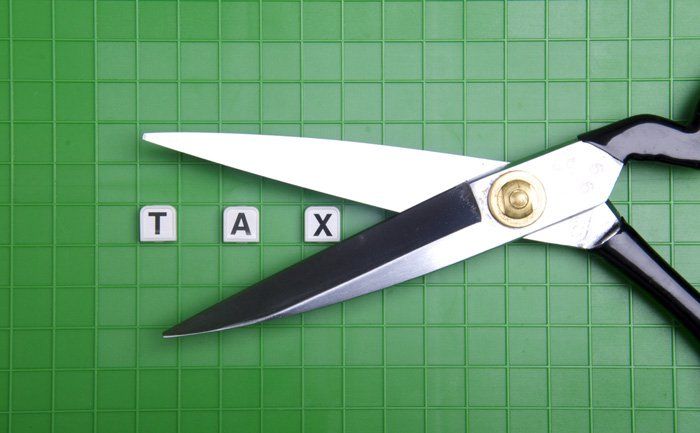EITC, elimination of low-income tax bracket at epicenter of tax policy debate
by January 20, 2021 10:26 am 727 views

A hallmark of recent Arkansas legislative cycles has been tax cuts. During his State of the State address last week, Gov. Asa Hutchinson noted that since he took office in 2015 about $800 million has been transferred from the state back to private coffers.
There is every expectation the tax slashing will continue as the 93rd Arkansas General Assembly ramps up. State Rep. Joe Jett, R-Success, told Talk Business & Politics there are several proposed tax cut bills that will garner attention, but one in particular, a cut to the sales tax for buying a used car has an excellent chance of passing.
Currently, no sales tax is collected if a used car is bought for $4,000 or less. Proposed legislation would move that number to $7,500 and then $10,000. Hutchinson said in his address that many people who buy a vehicle in these price ranges are doing so to get to work or school. If passed, the bill would cut $13 million from state coffers and then when the exemption increased to $10,000, it would deplete state revenues by $28 million.
“I think it’ll pass … I’d be shocked if it didn’t pass,” said Jett, who serves as the chair of the House Revenue and Taxation Committee.
Hutchinson has proposed another tax policy that would cap high income earners who move to Arkansas from another state at 4.9% for five years. However, it has been met with a lukewarm response from legislators who don’t think they can sell the proposal to constituents back home.
Sen. Jim Hendren, R-Gravette, is proposing an earned income tax credit (EITC) bill, similar to one he championed in the 2019 session. SB 2, the EITC measure, has had bipartisan support in the Arkansas legislature in the past, but it has often stalled.
The mechanics of the legislation affect those earning $22,000 or less. In theory, the income taxes they pay during the year are offset by an income tax credit to nullify the tax burden. Hendren’s bill proposes a 20% increase in tobacco taxes and an equivalent tobacco tax on e-cigarettes to beef up state revenue for EITC relief. The taxes could be adjusted to keep the bill revenue-neutral.
Jett has a bill, HB 1011, that could dramatically impact the lives of poorer Arkansans. There are about 1.5 million tax filers in the state each year and 48% of them make less than $22,200 per year, he said. His bill would eliminate all state income taxes from that universe of taxpayers.
He thinks the bill is generating bi-partisan support. Republican lawmakers for years have said they want to reduce income taxes for as many people as possible, and this would eliminate state income taxes for about 700,000 low-wage earners. Democratic lawmakers have long pushed for legislation to aid those in the lowest tax brackets. Taxpayers could save up to $700 per year, according to Jett.
The measure would cost an estimated $84 million annually, but Jett thinks the state would make up that shortfall in the way of increased sales tax revenues. People living in those tax brackets spend nearly every dime they make, meaning those extra dollars will pour back into local economies.
“I think people would be appalled to know that nearly half of tax filers make less than $23,000 in the state … We could get nearly half of taxpayers off the tax rolls if this passes,” he said.
Hendren said his EITC bill and Jett’s tax bracket elimination bill have similar goals to help low-income workers. As the session progresses, he expects much dialogue to find a solution that a sizeable majority of legislators can support.
“Rep. Jett is a thoughtful legislator and has a solid bill,” Hendren said. “While both bills provide relief to working families, the main difference is the EITC bill is offset with tax increases on tobacco and vaping. That makes it more difficult to pass, but I believe it is good policy. Either bill will provide needed relief to low-income families.”
Sen. Bill Sample, R-Hot Springs, chair of the Senate Revenue and Tax committee, said Wednesday (Jan. 20) he intends to hold all major tax cut bills until the end of the session. Sample said he did not want to pass substantial tax cuts and then have to deal with additional provisions towards the end of the session.
Hutchinson mentioned during his address that he wants to put another $100 million into the state’s long-term reserve fund. The fund has about $150 million already. Jett said he expects support for this move, and he supports the governor on this initiative.
At one time, Arkansas was one of the few states in the region that didn’t have a long-term fund. Jett said he understands the money in the fund could be used for other priorities, but keeping money in the fund actually will save state residents money over time.
Bond ratings and interest rates on those bonds can be impacted by the amount of money a state has in its reserve coffers, he noted.
Jett said he understands that thousands of Arkansans have lost their jobs due to the pandemic, and there has been a lot of national consternation as to whether governments should dole additional unemployment benefits or extend programs. Jett said there has been a lot of talk about unemployment benefits that he’s been a part of, but he thinks the topic will be broached at some point during the session.
Editor’s note: Roby Brock contributed to this report.
